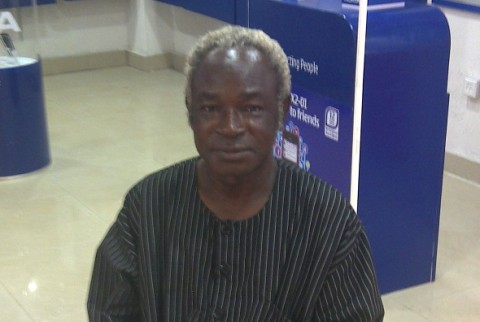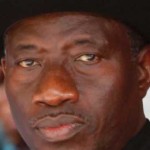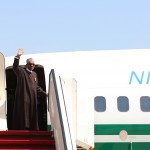Opinion: Waiting Time at Polling Booths and Locating Your Voting Station
Featured Contributors/Columnists, Latest Headlines Thursday, March 26th, 2015
By Prof. R. A. Ipinyomi, University of Ilorin, Nigeria – The 2015 general election in Nigeria may yet stand out as a reference point even for the wrong reasons. For those who are less emotional and working with open minds about the exercise the campaigns have been entertaining. Many new grounds were introduced notably by the respective wives of the two main contenders. From the distance one would think that Mrs. Jonathan could not speak or less eloquent but a careful listening to her would bring out our very rich local and indigenous African dialect, attempted to be translated directly to the British English. Similarly Mrs. Buhari came up with very strong points for her husband and rich in intellects and breaking perceived cultural barriers. These women must be given some credits and future First Ladies to be must no longer expect their husbands begging them with the key to the Aso Rock Palace. You need to campaign for it. Of course in the process they committed a number of errors of the mouth and spoke on cultural taboos which opponent politicians easily seized upon. The risk was worth it nevertheless and new coming politicians should reflect on happenings in Nigeria right now as pointers to a greater democratic and campaigning future for our women.
The men on the other hand got themselves boxed up into their usual old corners in the campaign arena. Unable to speak on main issues like their wives we learned that the men employed campaign managers to be posting abuses, insults and all names prohibited in the books. We also learned that different forms of cash and kinds were used either to rent crowds or to induce communities, worship houses and the traditional rulers. We only heard them in romours especially when the said monies were not shared evenly amongst pastors, imams, community leaders or traditional rulers. If this picture is found to be true that would have been a big draw back in our 16 years old Fourth Republic Democracy. On the whole there were notable gains to the process and amongst both male and female politicians. The social media held up and removed several cultural taboos and created the fact that each politician coming up has no hiding places at all. Your deeds will always speak for you and public officers must expect to be screened from when they started going to elementary schools to everything they ever did.
We may not be able to criticize INEC fully here at this stage because the organization is only about to commence its full election process. However it is now evident that INEC still leaves many unturned stones especially in voter’s education, information and infrastructure. Whereas emphasis was on the Permanent Voter Cards (PVC) there was nothing on the Permanent Voting Booths. A permanent voting booth or polling booth is a room or cabin in a polling station where voters are able to cast their votes in private to protect the secrecy of the ballot and their choices. Commonly the entrance to the voting booth is a retractable curtain. Usually access to the voting booth is restricted to a single person at a time, with exceptions for voters requiring assistance. In Nigeria this item has been neglected for as long as the history of our democracy. Current polling stations in Nigeria can be found anywhere from under the tree, road side, schools, or politician homes, etc, and they are arbitrarily located and subject to changes. There are no permanent structures erected as polling booths currently. This Saturday, we suspect that many people, including polling officers and electorates, are going to spend considerable time locating their polling stations. This ought not to be. Police and politicians are still arguing on whether a voter should stay or leave after casting a vote. When the dusts of 2015 general election finally settle INEC should come up with a blue print on having permanent voting stations across the nation for future elections; that is if we all agree that democracy has come to stay in Nigeria then erecting permanent polling stations must be part of the necessary components.
Meanwhile we may not confuse INEC’s card reader machines as voting machines. Card reader machines are to determine which card is genuine or not and whether the holder is the correct person to do so. They have limited applications than voting machines. Voting machines generally also use either a voting booth or some other form of privacy cover to obscure voters from the view of others in addition to being able to reject wrong cards. They may be compared to bank ATM stations. A voting machine is a combination of mechanical, electronic device, software program control and others. A voting machine can be used to define ballots, to cast and count votes, to report or display election results, and to maintain and produce any audit trial information. This is what we should be recommending for use in our elections because a voting machine system can minimize electoral frauds and speed up result tabulation. It has been found that where a voting machine system exists and is used in casting votes such votes can be indentified and further categorized by the location where the system tabulates the votes. While a card reader is simply to admit or reject a voter depending on whether the card is correct or wrong voting machines have additional different levels of usability including security, efficiency, timeliness, and accuracy. Such systems for Nigerians may be more or less accessible to all voters or not accessible to those voters with certain types of disabilities or level of education. They can also have an effect on the public’s desire and ability to oversee elections. Nigerian politicians prefer to carry the worries on their heads as if their presence is a major factor.
Nigerian administrations and politicians should use any detected limitations to build the democratic system through their cooperation with INEC, the security agents, and other institutions. We must be seen as working for a common goal. The prevailing electing fever is “fear of violence eruption” making voters likely to run away from pooling booths when they are most needed. We have got to this level by the artificial commitments of our rulers to democracy and their failures to develop institutions relating to democracy for the people. Polling booths should henceforth be within a walking distance and permanent for each electorate. The expected turnout in this 2015 general election in Nigeria is lower than 50 percent from our findings because of several factors. Some of the factors are created by the ongoing insurgencies, the quality of our politicians, transfers and movements of people after registration, deaths after registration, poor campaigns and poor candidates. Other factors have been created by INEC such as lack of accessible and visible location of voting stations, failure to register all qualified voters, failure to deliver all PVCs to respective voters, poor INEC campaign and information strategies. By far the worst obstacle for voters at this year election is the fact that most of electorates do not have access to know candidates and independently choose them because these are Abuja politicians or people they have been tutored to vote for only. The levels of our illiteracy in democracy, ignorance of our rights and holding to cultural, religious and regional sentiments are still high. The results and outcomes of the election may look more like block voting or arranged voting. Nigeria is however going to move on from here but must always be ready to go back to the drawing board for improvement.
Prof. R. A. Ipinyomi
ipinyomira@yahoo.co.uk or/and raipinyomi@unilorin.edu.ng
Related Posts
Short URL: https://www.africanexaminer.com/?p=22950





















